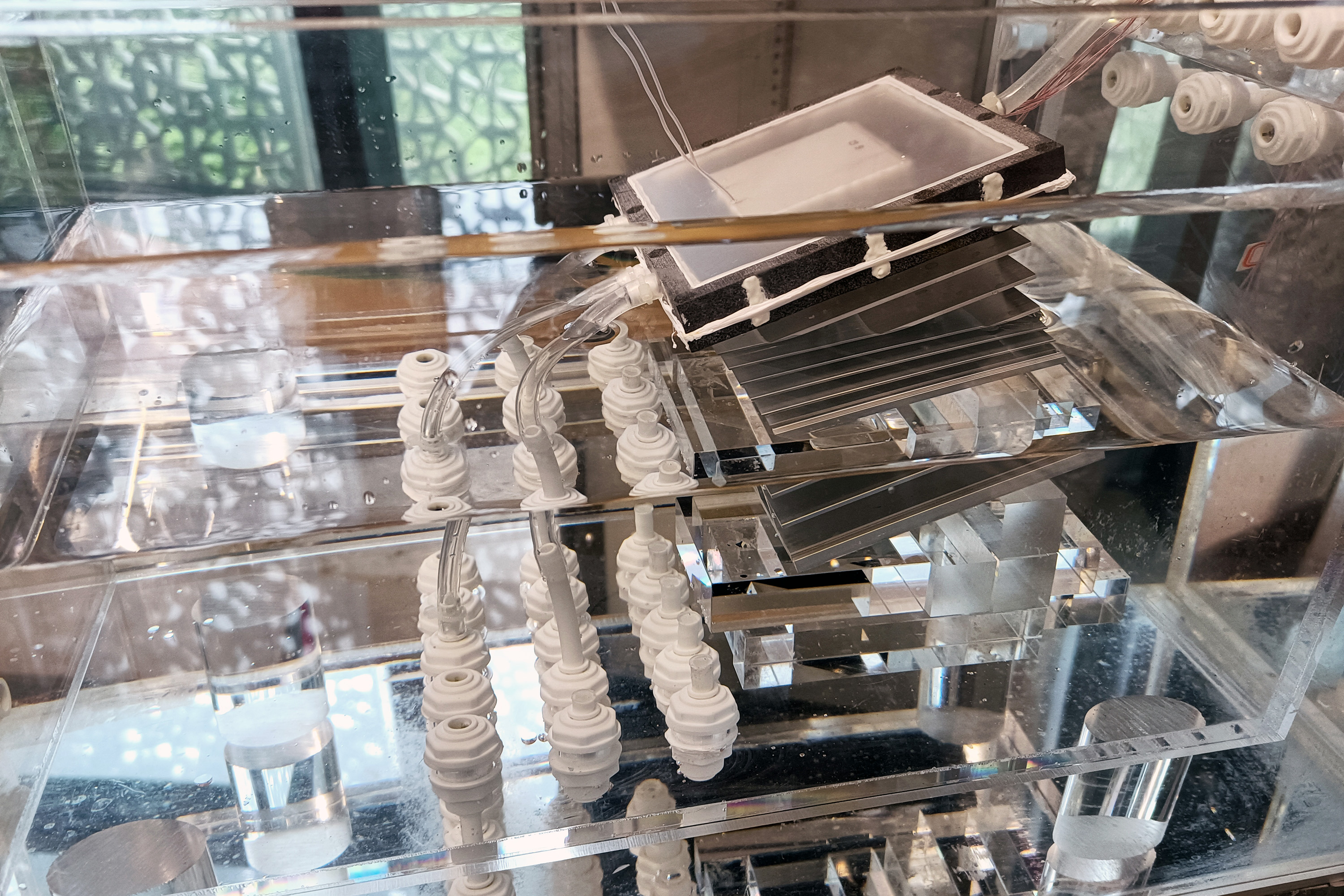Desalination system could produce freshwater that is cheaper than tap water::A new solar desalination system takes in saltwater and heats it with natural sunlight. The system flushes out accumulated salt, so replacement parts aren’t needed often, meaning the system could potentially produce drinking water that is cheaper than tap water.



You can Google this, but the specifics might be hard to get at without specific terminology. Apologies if this is long.
Salt water is not just salt and water. It’s a lot of dissolved things at a low concentration, so when you purify it, you can remove the water, but are left with everything else to deal with.
The byproduct is called “brine”, and it’s basically a highly saline slush with all the heavy metals and now microplastics that humans have fucked the oceans with.
You can’t even really turn it into anything else in most cases (locations vary on purity) because after you remove all the water you have things like mercury, lithium, chlorine…whatever other minerals the locale has leeched into the water by natural process or dumping. Due to the processing it’s all HOT and volatile, so you cant just let it sit there, you have to put it some place.
You can’t just dump it back into the ocean because then you’re making the ocean TOO salty and killing everything. You can’t put it into a landfill because then you’re just building a toxic waste dump. You have to essentially do what we do with nuclear waste and bury it in a vault because there is no good use for it (maybe this can change in the future), and the chances it will just leech out into the world and create an ecological disaster is insanely high.
For every gallon of ocean water you desalinate, you have something like an ounce of this leftover brine. Do that a few million gallons a day, and you have quite a lot to deal with.
This isn’t even taking into account all the methane producing living things you’re killing by filtering out before you even get to the actual desalination steps, which is a whole other thing.
Tldr: it’s not a good way to get water.
The verdict on brine impact is not out yet AFAIK. It impact species differently.
Study of brine discharge from desalination plant finds good news and bad news (2019)
They are developing technologies to deal with brine like solar powered brine crystallization or mixing it with sea water before reintroducing it. More are discussed quickly in this review: Characteristics of Desalination Brine and Its Impacts on Marine Chemistry and Health, With Emphasis on the Persian/Arabian Gulf: A Review. That one is actually good and very readable to the layman (i.e me):
The conclusion puts it well
Much better explanation than my off the cuff attempt, great added detail.
I only saw yours after mine, but very succinct.
I believe most places pump in extra seawater to heavily dilute the brine, then release the extra-salty water over a wide area back onto the sea.
Yes, and that’s the lazy way of getting rid of it, and is ecologically devastating to the ocean. Israel has cause MASSIVE die offs by doing this with their large scale Desal operations, and plenty of info discussing it is online.
The jury is not still out on this. You’re posting what is essentially paid advertising for the industry.
Put it like this: You can’t take water out of the ocean and expect everything to work as it has been, and you also can’t just dump salt into it and expect the same. It’s pretty fucking obvious.